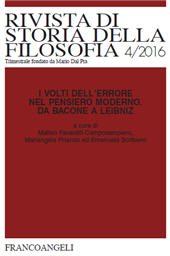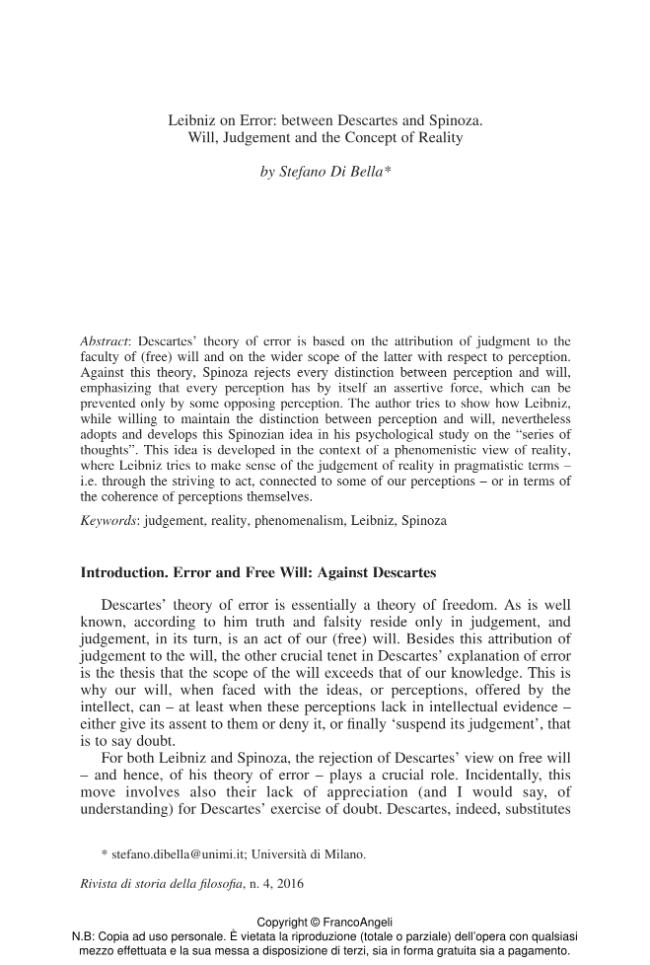Leibniz on error : between Descartes and Spinoza : will, judgement and the concept of reality
713-725 p.
Descartes' theory of error is based on the attribution of judgment to the faculty of (free) will and on the wider scope of the latter with respect to perception. Against this theory, Spinoza rejects every distinction between perception and will, emphasizing that every perception has by itself an assertive force, which can be prevented only by some opposing perception. The author tries to show how Leibniz, while willing to maintain the distinction between perception and will, nevertheless adopts and develops this Spinozian idea in his psychological study on the "series of thoughts". This idea is developed in the context of a phenomenistic view of reality, where Leibniz tries to make sense of the judgement of reality in pragmatistic terms - i.e. through the striving to act, connected to some of our perceptions - or in terms of the coherence of perceptions themselves. [Publisher's Text].
-
Articoli dello stesso fascicolo (disponibili singolarmente)
-
Informazioni
Codice DOI: 10.3280/SF2016-004010
ISSN: 1972-5558
PAROLE CHIAVE
- Judgement, reality, phenomenalism, Leibniz, Spinoza



